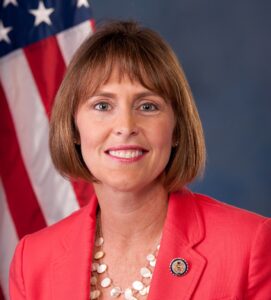By Gina McCarthy, Natural Resources Defense Council
Any good angler checks the tides before heading out on the water. But who ever imagined we’d be consulting the tide charts before shopping – or even going to the mailbox?
More and more, that’s becoming our new reality, as places like Florida face more frequent tidal flooding. It’s just one way the rising costs and mounting dangers of climate change are threatening the health of our people and the way of life across the Sunshine State, where warming temperatures and rising seas are making fish kills more common, the Everglades more threatened and storms and hurricanes more devastating.
It will all get worse unless we speed the shift away from the fossil fuel pollution that’s driving the climate crisis, in favor of cleaner, smarter ways to power our future.

A plan released Tuesday by climate leaders in Congress will help us do exactly that – while helping to get our economy humming again in these tough times. Produced by the majority on the House Select Committee on the Climate Crisis, chaired by Kathy Castor of Tampa, it’s the most comprehensive call to action ever on the central environmental challenge of our time.
House Speaker Nancy Pelosi created the committee last year to take a hard look at the climate crisis and find a way forward for the country, and that’s exactly what the panel did.
The result of months of hearings, some 700 sets of written comments, and meetings with more than 1,000 experts and stakeholders – scientists, business executives, justice advocates, community leaders, environmental proponents and more – this report embodies a national consensus for progress and change.
Its proposals will mean cleaner air and water, safer, more prosperous communities, and a brighter, healthier more promising future. And the Castor plan will help to get our people back to work and create a more just and equitable society for everyone.

Clean energy has grown jobs 70% faster than the workforce overall, over the past five years, employing three times more people than fossil fuels.
When the coronavirus pandemic hit, there were nearly 3.4 million clean energy workers nationwide. They’re helping us to become more energy-efficient, so we do more with less waste. They’re making clean cars and trucks. They’re helping us get more clean energy from the wind and sun, and building a modern national grid for marketing and storing that power.
The plan introduced Tuesday will create millions more of these good-paying jobs in every community in the country.
The plan helps position our workers and companies for success in the fast-growing global market for clean energy, driving research and development, promoting domestic manufacturing of promising new technologies and investing in job training that gives everyone an on-ramp to the low-carbon economy of tomorrow.
And it addresses the environmental injustice that Black people, indigenous communities and people of color have suffered for too long – living with disproportionate levels of toxic pollution and industrial hazard.
The plan calls for strengthening the enforcement of the safeguards we rely on to protect clean water and air. It requires accounting for the cumulative harm a factory, power plant or refinery does to a community over time. And it gives community members a real say in the decisions that impact the health of their families.
The House is poised to make a down payment on the plan soon, with a vote on the Moving Forward Act, a landmark infrastructure bill that includes support for renewable energy and needed investments in sustainable transportation and safe drinking water. It’s a vital first step in the right direction.
But it must be only the beginning. It’s time for our leaders at all levels to work together to move full speed ahead toward the kind of world our kids and grandkids deserve: one that’s full of hope, opportunity and prosperity.
Gina McCarthy is president and CEO of the Natural Resources Defense Council.
“The Invading Sea” is the opinion arm of the Florida Climate Reporting Network, a collaborative of news organizations across the state focusing on the threats posed by the warming climate.




Over 500 pages of regulations and incentives. What will it cost? How will it affect the economy? A refunded Carbon fee would eliminate regulations by incentivising clean, renewable energy production, allowing the market to chose the best producers. A carbon fee prices fossil fuel in all it’s uses, transportation, electricity production, manufacture of steel, aluminum, concrete and others, leaving producers to choose cheaper ways to manufacture their products. A carbon fee creates jobs, grows the economy and doesn’t grow government. The ideal fee will be returned 100% to all taxpayers, with low income households guaranteed to come out ahead. Obama called it an exquisite solution. Economists, and 50+ countries worldwide are already implementing it, including Canada, Mexico, Chile, China, the UE, and many others. Of course there’s areas it can’t address, like food waste and building insulation where regulations and incentives help.